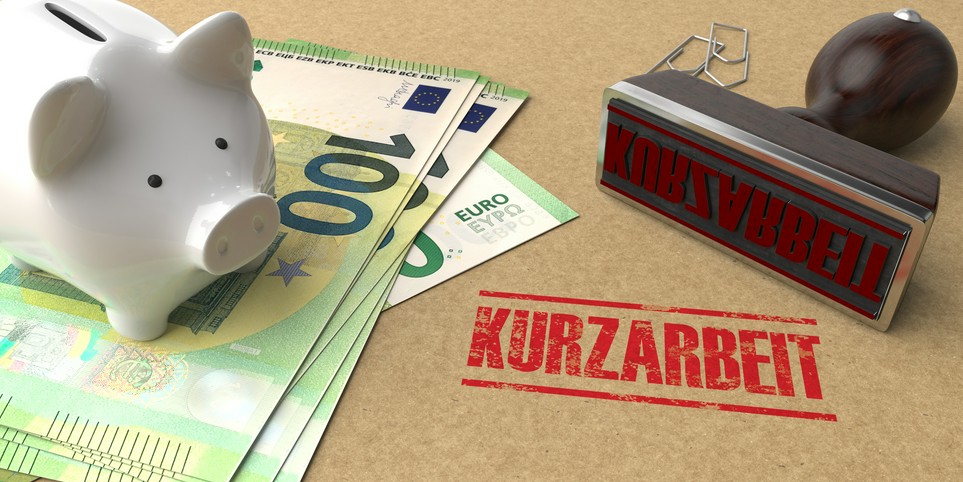How the Corona Virus Affects Your Tax Return
How does the coronavirus affect your tax return?
There are several things mind that can help you save taxes on your 2020 tax return (Steuererklärung), for example the Home Office Lump Sum (Home-Office-Pauschale). It’s also important to keep in mind that it’s required to file a tax return if you received more than 410 euros in short-term work benefits (Kurzarbeitergeld) – other circumstances that oblige you to file can be found in this article.
The deadline to submit your tax return is always July 31st. As July 31st, 2021, falls on a Saturday, your 2020 tax return will be due on the following weekday instead: August 2nd, 2021.
Tax Office Hours / Availability during the Pandemic
Tax offices (Finanzämter) are once again closed to the general public, but you can still get in touch with them by phone, e-mail, post, or via ELSTER online. Some tax offices can also grant personal appointments for urgent situations. The processing time for tax returns can be significantly slower this year as many more people have to submit tax returns due to the increase in short-term work (Kurzarbeit).
Are short-term work benefits tax-free?
According to §3 Paragraph 2 of the Income Tax Act (EStG), short-term work benefits are tax-free wage replacement benefits (Lohnersatzleistungen) – however, there is a catch – the benefits are subject to the so-called Progressionsvorbehalt which adds the non-taxed benefits to your taxable income amount, leading to a possible increase in your tax rate if you move up into the next tax bracket. The tax rate is then applied to your taxable income without the short-term work benefits, possibly leading to a tax back payment. Your employer will list the amount of benefits you’ve received in your income tax statement (Lohnsteuerbescheinigung) and send it to the tax office.
Parents receive 7% more in short-term work benefits than those without children, this is determined through the amount of child allowances (Kinderfreibeträge) entered on their electronic wage deduction details (ELStAM). These allowances can apply to children up to the age of 25 as long as they are in training, studying, or volunteering. If you have children but haven’t entered any child allowances, inform your employer and contact your local tax office to fix that.
Can I earn supplementary income while receiving short-term work benefits?
The Social Protection Package II (Sozialschutz-Paket II) enabled short-term workers to take on minijobs (up to 450€ per month) without paying any contributions so they can to supplement their reduced income while receiving short-term work benefits. This adjusted regulation is valid until the end of 2021.
The situation is different if you earn more than 450€ in a side job while receiving short-term work benefits. If you already had a side job before starting short-term work, the calculation basis for your benefits won’t change. However, if you started the side job while on short-term work, your supplementary income (over 450€) will be deducted from the calculation basis (your previous net salary) and reduce your received benefits. Because of Corona, there are temporary regulations that ease these regulations and allow you to earn some supplementary income while on short-term work:
- If your side job is systematically relevant, the funds from April 2020 will not be offset against your short-term work benefits
- The possibility to earn supplementary income was extended to all occupations from May 1, 2020 to December 31, 2020
- Supplementary income is only exempt from being charged to your benefits if the sum of your benefits and additional income do not exceed your original net salary (before short-term work)
- Systematically relevant professions during the Corona crisis include jobs in the healthcare sector (doctors, nurses, paramedics), police and fire department employees, disaster control, or employees in supermarkets and pharmacies
Short-term work & Corona bonuses from your employer
If your employer wants to grant you a bonus on top of your short-term work benefits, they remain tax-free as long as they don’t exceed 80% of your lost wages – keep in mind that just like short-term work benefits, these short-term work bonuses are subject to the aforementioned Progressionsvorbehalt.
Your employer is also permitted to grant you a tax-free Corona bonus that can amount up to 1,500 euros. The Corona bonus is not subject to Progressionsvorbehalt and will not affect your tax rate.
Deduct your work room (häusliches Arbeitszimmer) or use the Home Office Lump Sum (Home-Office-Pauschale) to save taxes
Expenses for an office in your home (work room) used to only be deductible as income-related expenses (Werbungskosten) in exceptional cases (§4 Paragraph 5 Sentence 1 No. 6b of the Income Tax Law EStG). Because of Corona, more people are working from home now than ever and employers are required to allow this. If you’ve been working from home due to the pandemic, you now have the chance to claim your days spent working remotely on your tax return. What are the requirements to claim your work room and days spend working from home?
- To deduct your work room, strict requirements must be met. A corner dedicated to work in your living room does not suffice (see this article)
- Your work room must be used primarily for professional purposes. You can deduct up to 1,250 euros for it as long as your employer hasn’t provided you with another workplace
- If your work room doesn’t meet the requirements, you can deduct a flat rate of 5 euros for each day spent working remotely as part of the Home Office Lump Sum
You can receive a maximum of 600 euros per year through the Home Office Lump Sum. This can be used to offset increased electricity, water, heating, telephone, and internet costs that come from spending more time at home. It can also help make up for the lost commuter allowance (Pendlerpauschale). The new lump sum is included in the income-related expenses lump sum (Werbungskostenpauschale) of 1,000 euros.
Work equipment that is used for professional purposes at least 90% of the time (such as furniture and electronics) can also be deducted as income-related expenses. This is regulated in the income tax guidelines.
Child bonuses and reliefs for single parents
Child bonuses (Kinderbonus) are essentially bonuses to your child benefits (Kindergeld) that are paid separately from the benefits as individual payments. The 2021 bonus of 150 euros (per child) will be awarded if one was/is entitled to child benefits in the same year. The bonus in 2020 amounted to 300 euros, paid in two installments in September and October 2020.
Parents can apply for child benefits at the Department for Family Benefits (Familienkasse). When the tax office is assessing your tax return, they will automatically check if child benefits/bonuses provide you with a tax advantage through the so-called Günstigerprüfung.
If you are a single parent, entitled to child benefits, and do not live with another adult in a household – you’re eligible for a tax relief (Entlastungsbetrag). The relief amounts to 4,008 euros for your first child and 240 euros on top of that for each additional child.
More information about Corona’s effects on your taxes
- Due to the Corona crisis, the filing deadline for the 2019 tax year was extended to August 31st, 2021, if you have your tax return prepared by a tax advisor.
- Sales tax (VAT) was reduced to 16% from July 1st, 2020 to December 31st, 2020 (reduced VAT was lowered from 7% to 5%). As of January 1st, 2021, sales tax returned to 19% and 7% respectively.
- Until June 2021, companies can grant their employees tax-free Corona bonuses up to 1,500 euros.
You can find more information about your 2020 tax return here.
Read this article to find out more about the tax changes in 2021, such as the increase in tax-free allowances (Freibeträge) and lump sums for disabled persons.
Don’t want to pay an expensive tax consultant? Use Wundertax’s cheap, online solution!


